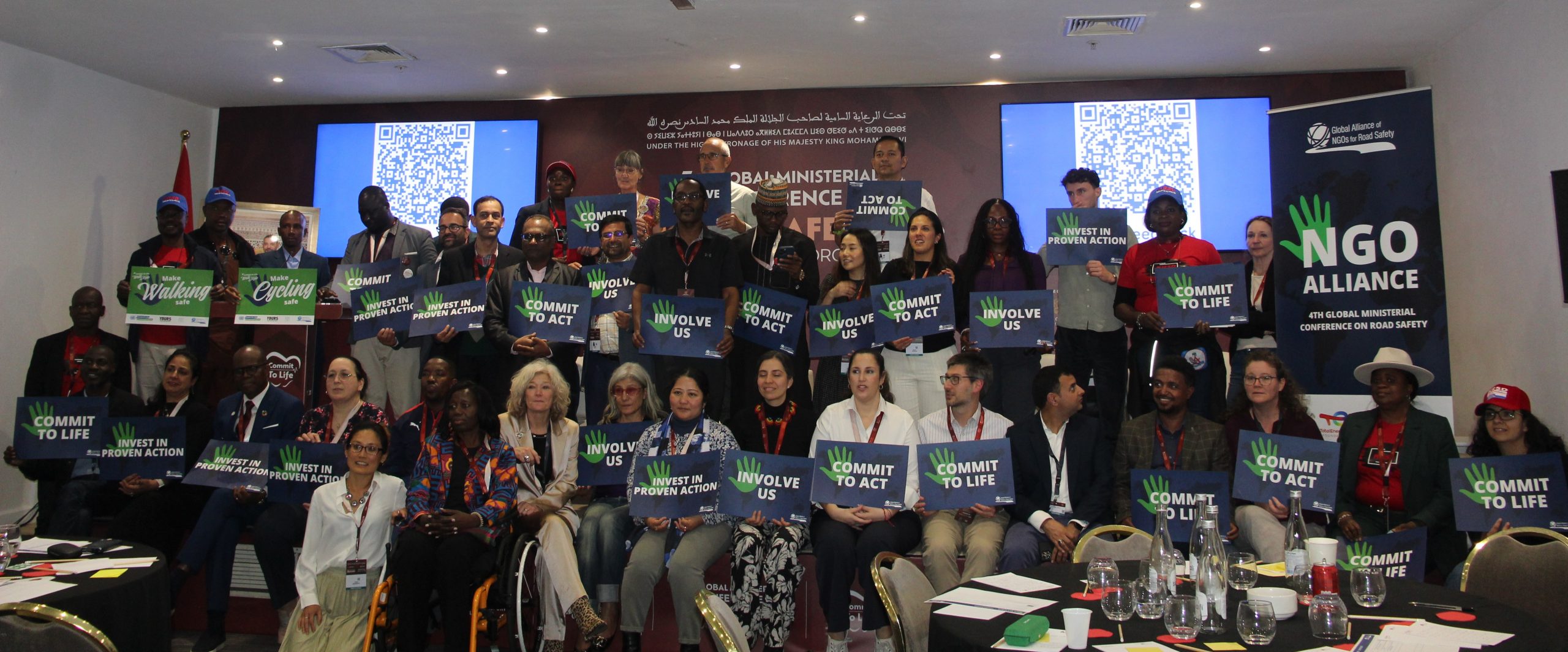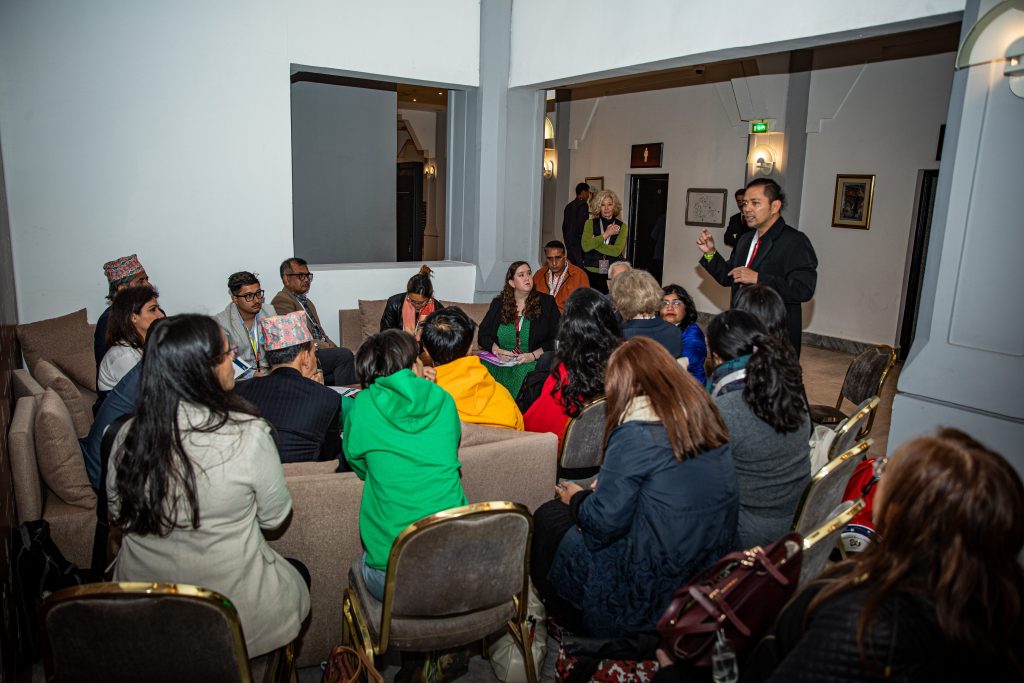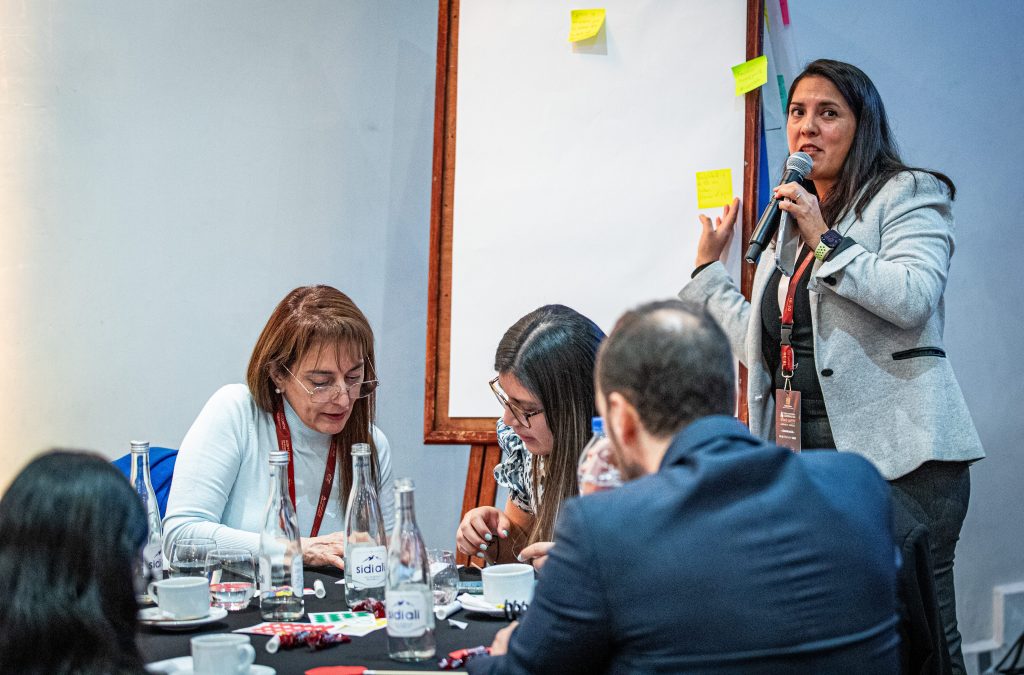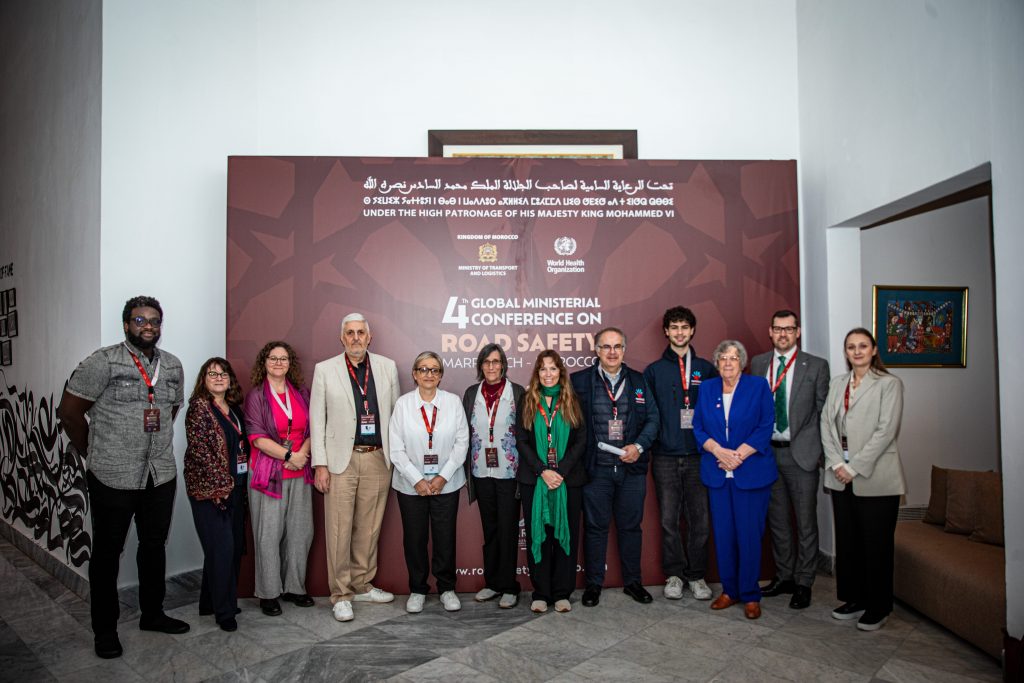
The Alliance held four NGO Regional Meetings at the 4th Global Ministerial Conference on Road Safety in Marrakech. Participants from all around the world actively shared experiences, identified challenges, and strategized on leveraging advocacy tools, capacity-building initiatives, and partnerships with governments, private sectors, and academia. The discussions emphasized the importance of data-driven advocacy, smart communication strategies, and building sustainable relationships with key stakeholders to further road safety advocacy and action.

Forty-three participants were in attendance. NGOs noted that Alliance-led activities were useful for their advocacy work. They highlighted the milestones gained in engaging government, establishing trust and building a positive relationship by informing, persuading and, convincing government and key stakeholders through use of data and showcasing what has worked.
Participants actively reported that these activities improved their ability to inform, persuade, and build trust with government stakeholders using data-driven arguments which has led to successful government partnerships. For instance, in Nigeria, the Children Accident Prevention Initiative secured an MoU with the government for community road safety functions; in Cameroon, SECUROUTE supported the lead agency; in Rwanda, Healthy People Rwanda collaborated with government to submit a successful UNRSF proposal; and in Kenya, Amend and ASIRT-Kenya partnered with FIAF to implement a safe school zone demonstration project. NGOs also highlighted the following recommendations:
The Africa Chapter meeting was supported by TotalEnergies Foundation.

Twenty-six participants from across Asia highlighted some gains made including initiating local advocacy in Nepal, contributing to the Philippines action plan, and utilizing an online global petition in India. They also highlighted how Alliance programs—such as the Incubator and Mobility Snapshots campaign—empowered local initiatives that eventually influenced national action.
They discussed the need for better collaboration and intergovernmental coordination to address road safety challenges in the region, in addition to other strategies including:

The Latin America meeting had29 attendees and showcased robust participation of the region in Alliance-led activities throughout 2024. NGOs actively utilized several key advocacy tools whiech led to several successes in their advocacy, including:
Participants actively demonstrated how these tools facilitated meaningful engagement with government bodies, media, and academic partners. They reported successful partnerships with municipal and national governments across Argentina, Colombia, Brazil, Mexico, Uruguay, Guatemala, El Salvador, and Ecuador.
Moreover, collaborations with private companies and academic institutions have supported efforts to improve road traffic data quality and implement evidence-based interventions. To further strengthen regional advocacy, participants recommended integrating more peer-to-peer sessions and increasing the frequency of capacity-building initiatives.

This meeting convened 12 participants who provided comprehensive country updates that highlighted both successes and challenges:
The meeting also emphasized forging new advocacy partnerships, continuous government engagement, and media collaboration.